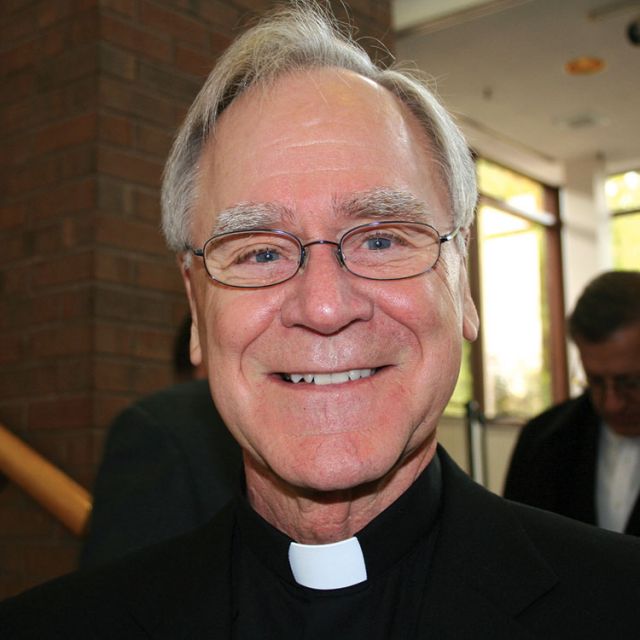The Moving Forward Together Campaign is asking Catholics across Canada to take that first step toward a new relationship between the Church and aboriginal Canadians. On Dec. 7-8 the campaign will distribute collection envelopes in the parishes of 10 dioceses from Vancouver to Halifax-Yarmouth. The campaign is looking for funds to support programs helping young native Canadians get a leg up in their education, help aboriginal families stay together and bring native and non-native communities together to pray and share.
The parish collections are one small part of the residential schools settlement. The courts had asked the Church to make its best efforts to collect $25 million for healing and reconciliation programs over five years. Moving Forward Together was set up with co-chairs Archbishop James Weisgerber, former Assembly of First Nations national Chief Phil Fontaine and Sr. Donna Geernaert representing Canada’s religious orders.
The fundraising campaign has not gone well and there’s no expectation that a weekend of parish collections is going to make up the difference. After an early attempt to raise money and support in corporate Canada fell flat, the Moving Forward Together Campaign has retooled to concentrate on supporting local, community-based efforts across Canada to build up native communities and promote reconciliation with non-native Catholics.
“As a country, we’re one people,” explains Weisgerber. “For Catholics, we believe in even a deeper connection between people. But even just the Canadian connection means that everybody has to get an opportunity to move ahead.”
Canada’s 1.3 million aboriginal people are younger than the rest of the country. Half the aboriginal population is younger than 27 as opposed to a median age of 40 for the rest of Canada. They’re also poorer. In the 2006 census, median income for aboriginal Canadians was 30-per-cent below the national figure. And they struggle to get a viable education. As of 2008 Statistics Canada reports that 34 per cent of aboriginal Canadians between the ages of 25 and 64 had less than a high school diploma, compared to 15 per cent of the non-aboriginal population.
The situation comes out of a long history that includes the terrors and trauma of the residential school system, Weisgerber told The Catholic Register.
“But the larger part has simply been colonization. We didn’t share very well,” he said.
Repairing that damage means making special efforts, said Moving Forward Together co-ordinator Gerry Kelly. But beyond the money, it means getting dioceses, parishes and individual Catholics involved in reconciliation.
To that end Moving Forward Together is encouraging dioceses to come up with their own projects.
“We’re really interested at this level of the campaign in letting people do what they want to do rather than creating a list of obligations and asking people to sign up for them,” Kelly said.
Those diocese-by-diocese efforts have included scholarships at Memorial University of Newfoundland and Montreal’s Concordia University, the Kateri Native Ministry in Ottawa, Returning to the Spirit programs across Canada and the Talitha Cum Society helping native women in Vancouver’s downtown lower east side.
The bulk of the projects are aimed at off-reserve natives, where today the majority of aboriginal people live.
“It’s a concrete opportunity for reaching out. People recognize there’s a huge challenge here. Often we don’t have anything we can do about it, but here’s a very specific thing that we can do,” said Weisgerber.
“If anybody should be able to do it, it’s the Church. Because we believe we’re brothers and sisters.”
Over nearly five years Moving Forward Together raised $3.5 million from religious communities and dioceses. While the collection this second Sunday of Advent isn’t going to close the gap with the $25-million goal, it’s an opportunity to get ordinary Canadian Catholics involved.
“While it’s a legal obligation, we can show good will,” said Weisgerber. “Good will can go a long way toward attracting other people, then committing ourselves more.”

